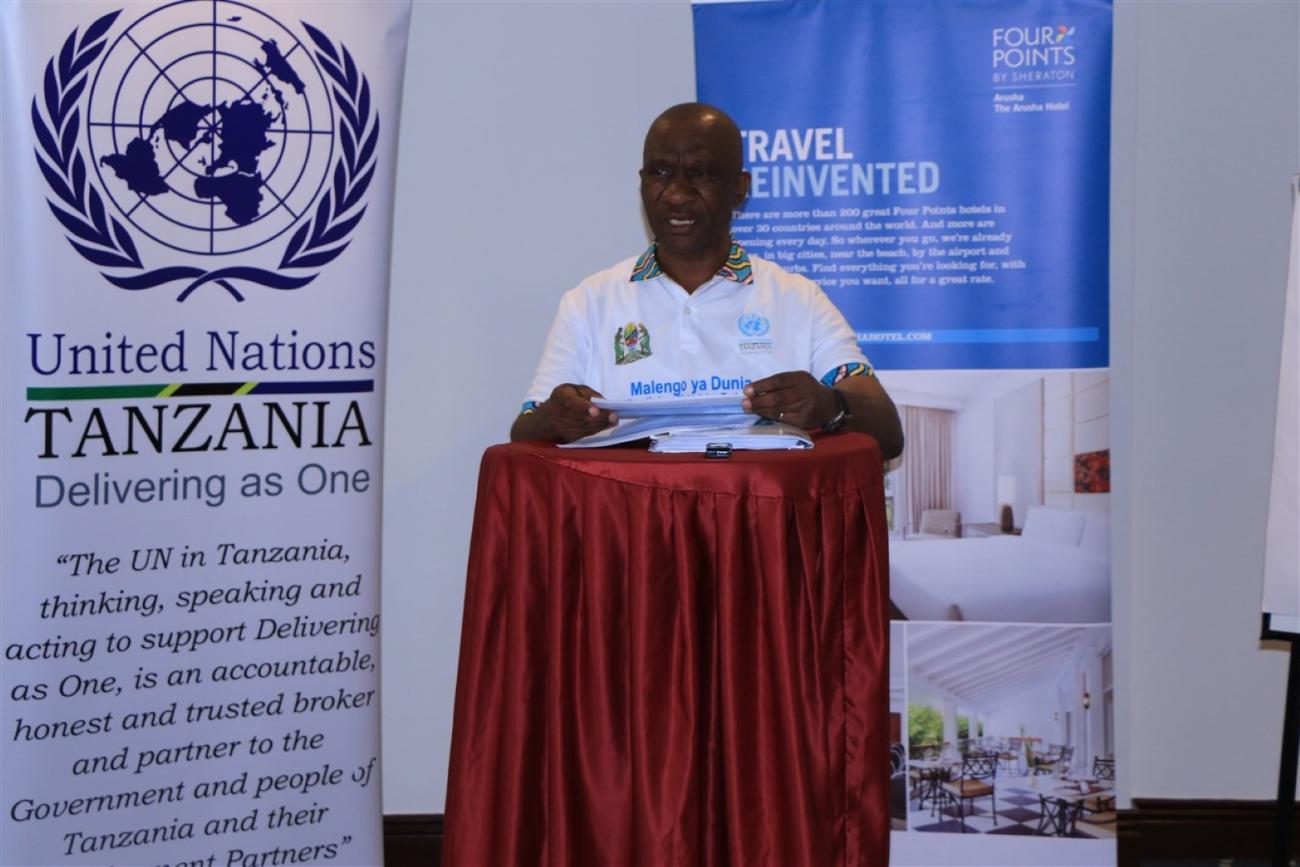In September, the United Nations and the Tanzania Editors Forum (TEF) conducted field visits, to projects being implemented in Arusha and Kilimanjaro by the International Labour Organization (ILO), the United Nations Industrial Development Organization (UNIDO), the United Nations Capital Development Fund (UNCDF), the United Nations Conference on Trade and Development (UNCTAD), and the United Nations Development Programme (UNDP). The field visits were part of Zonal Media Training for journalists that have been conducted by the UN and TEF over the last several months.
In Arusha, the delegation visited an ILO Apprenticeship project that has been supported by the government of Norway. The project is being implemented both in the mainland and Zanzibar is aimed at promoting access to quality training and employability for young women and men. To date, more than 200 youth have benefitted from the programme. The ILO is working with VETA and other training partners to develop and implement apprenticeship programmes in other sectors including tour guide, carpentry and joinery, plumbing and pipefitting and masonry among others.
The delegation also visited the Arusha branch of the Tanzania Engineering and Manufacturing Design Organization (TEMDO) which is an applied engineering institution which develops and promotes process design, products and commercialization of technologies to suit local manufacturing conditions. TEMDO is an agency of the Ministry of Industry, Trade and Development and UNIDO’s support has allowed their engineers to have greater flexibility, speed and accuracy when designing products for clients. UNIDO has also contributed equipment that is used to create industrial machines for local manufacturers.
In Kilimanjaro, the delegation visited a UNCDF-supported project in the Same district which is being implemented by Beth Equal Solution Company Limited (BECL) in collaboration with Same District Council. Through the collaboration, the partners implement contract farming with about 200 farmers (70% being women) whereby BECL provides capacity-building on Good Agricultural Practices to government extension officers, who in turn train the farmers. The team visited some of the farmers at Ruvu Kajiungeni village who requested for more technical support and value addition in horticulture produce for them to meet the desired market standards.
In Moshi town, the delegation visited a project that is supported by UNCTAD as well as other partners. UNCTAD has supported the project with a total of $6,000. The project increases the scope, scale and sustainability of women-owned businesses in tourism supply chains in Tanzania especially in the poorer and more remote areas of the country. So far, a total of 60 women farmers have received entrepreneurship training and 58 farmers received training on ‘Farming as a Business’. The training assists them in making decisions on what to grow based on costs, sales, pricing, productivity and profitability. The women farmers sell products such as banana, eggs, milk, maize and various vegetables.
The delegation also visited a UNDP/Global Environmental Facility (GEF) supported a project in Same district, Chome Nature Forest Reserve (CNFR). The reserve has a total area of 14,283 hectares and is surrounded by 27 villages. The project, which started in 2014, is targetted at expanding and strengthening the management of the Tanzania Forest Reserve Network in response to threats to biodiversity. Among the project, impacts include the construction of ranger posts and head offices at six targeted Nature Reserves, the promotion of cultural and eco-tourism in the respective Nature Reserves as well as it was gazetted 8 Nature Reserves and the reduction of poverty for the surrounding communities through involving them in income-generating activities.
The field visits were followed by a workshop in Moshi where more than 36 journalists from Arusha, Manyara, Kilimanjaro and Tanga regions were briefed on UN activities in their respective regions and on Development Journalism in the context of the SDGs.


